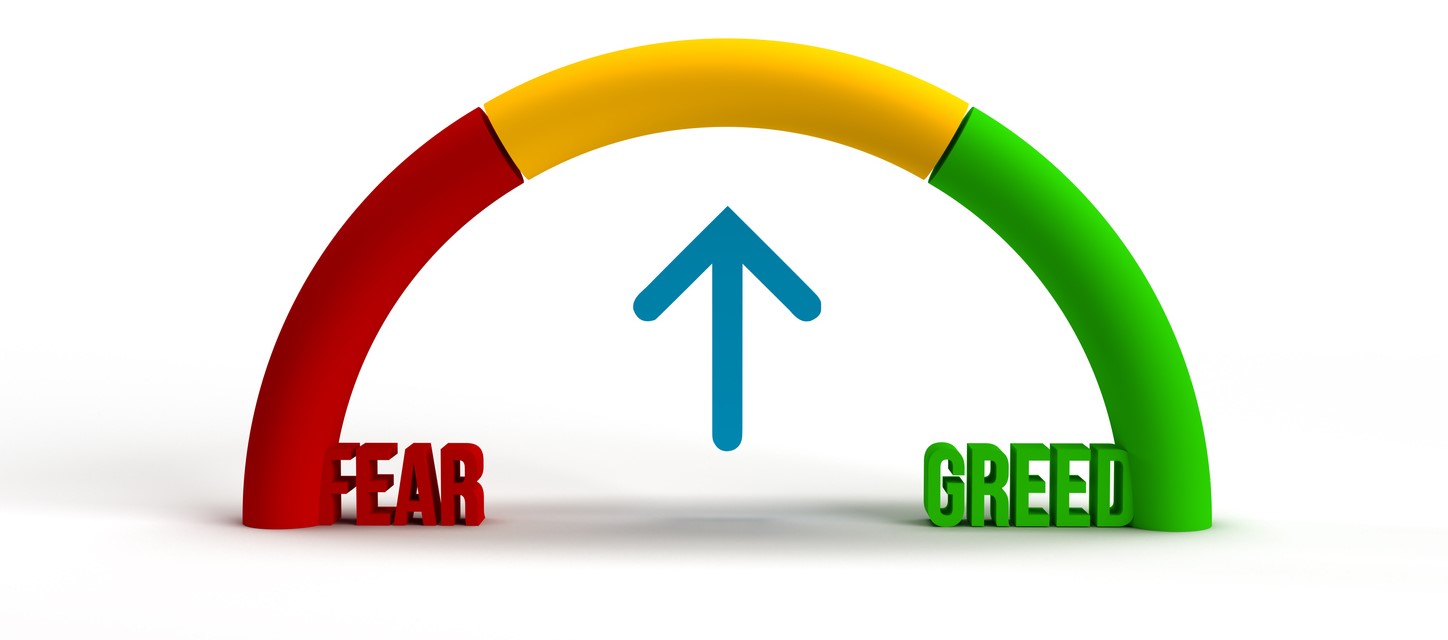“Be fearful when others are greedy, and greedy when others are fearful.”– Warren Buffett
At Heritage we celebrated our 30th anniversary this year, and it inspired us to look back on all the changes our industry has seen in the past three decades. Investment technology has vastly improved, allowing us to provide a wider range of services to our clients. Trading costs have fallen dramatically—in some cases, nearly to zero. The brokerage commission model has mostly disappeared from the industry and been replaced by the fee-only fiduciary model, which we have embraced since our first day in business.
However, one aspect of the investment world has not changed at all over the past 30 years, and that is human emotion. When we founded Heritage, we recognized that stock and bond investors were usually driven by two emotions: fear and greed. When the news was bad, fear urged them to get out of the markets. When markets were on the rise, greed drove them to want more. And as we have seen in the decades since, these emotions still drive many investors to make changes at precisely the wrong times, and investors as a group have not improved on this front.
Each era of our 30-year history has provided us with well-documented examples of investors being tempted by fear and greed:
- The dot-com bubble (1995-1999). Heritage was born during a period of relative calm in the markets, but in 1995 the dot-com bubble began to inflate. Tech stocks were in fashion, and greed led some investors to bid prices up to dizzying heights despite ample evidence that the hype far outweighed the reality.
- The dot-com bust (2000-2002). The stock market peaked in March 2000, and as it fell, some tech stock investors realized they had overextended themselves. The 9/11 attacks added to the somber mood in 2001, and by 2002, fear was driving investors out of the market entirely.
- The real estate bubble (2003-2007). The stock market bottomed in March 2003, but investors continued to shun tech stocks in favor of emerging markets stocks and—more significantly—real estate. Low interest rates and lax lending standards allowed millions of Americans to borrow heavily and ignore risk in an attempt to become small-scale real estate barons. Greed and leverage conspired to create a real estate price bubble, setting up the world for financial disaster.
- The global financial crisis (2008-2009). This was the “big one”. When the real estate bubble imploded, falling prices made over-leveraged banks and individuals insolvent in the blink of an eye. Houses and stocks dropped to bargain-basement prices, but fear kept many investors on the sidelines for years, preventing them from profiting in the decade to come.
- The aftermath (2010-2019). With memories of the global financial crisis fresh in investors’ minds, pessimism kept greed subdued while fear emerged on several occasions. Multiple debt crises in Europe, the downgrade of US Treasury debt, and Brexit drove some investors out of the market. Those who stayed out missed at least a portion of the 144% return in stocks over the decade.
- Covid-19 (2020). The virus emerged in late 2019, and in March 2020, full-blown terror ensued. Global stocks fell by more than 30% in only a few weeks and then bounced back just as quickly. Stocks ended up gaining 48% in the final nine months of 2020 despite the virus, and investors who had succumbed to fear and panic selling missed one of the best comebacks of all time.
- Covid-19 recovery and inflation (2021-2023). Since 2020, investor emotion has once again fluctuated between fear and greed. Greed was initially fueled by meme stocks and cryptocurrencies during the pandemic, then in 2022 it was overcome by the fear of inflation and recession, and it has revived most recently with the emergence of artificial intelligence as an investment theme earlier this year.
“…we recognized that stock and bond investors were usually driven by two emotions: fear and greed.”
Clearly the average person’s propensity to invest emotionally has not diminished over time. Investors driven by fear and greed have made the round trip between those emotions several times over the past 30 years, likely making some harmful investment decisions along the way.
Fortunately, fear and greed have not been the only constants over the past three decades; optimal investment principles have not changed either. Capitalism will make us wealthy over time if we allow it to. Markets provide us with fair prices without our having to guess what is coming next. Diversification protects us from the worst of the bubbles and panics, and discipline protects us from the ravaging effects of fear and greed.
Investors who refused to be ruled by these emotions and who adhered to solid principles benefited from the considerable growth in global equity markets since the founding of Heritage in 1993. And investors who want to be successful over the next 30 years should accept that markets will continue to be ruled by these two emotions—and that the best defense is an investment plan that is resistant to fear and greed.
The original version of this article was written by Heritage for the November/December 2023 edition of The Light, a local magazine serving Broward County, Florida.


